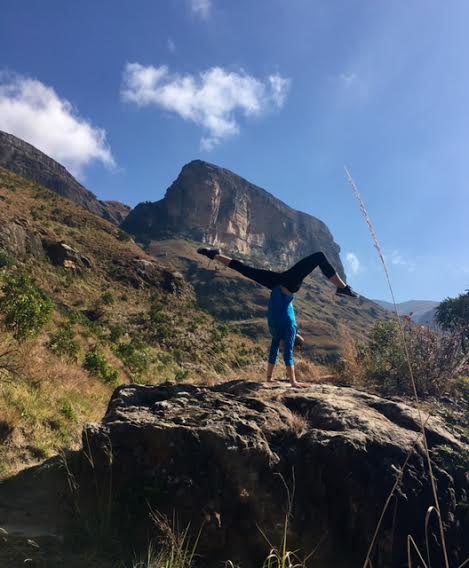Week 5: Climbing Mountains
Week 5 at Khulumani opened my eyes to a reality I hadn’t quite considered yet. Up until this point, all my research, writing, interviews and other work have revolved around enforced disappearances of the past. Most of the cases I work with took place before I was even born. In South Africa people often speak of a healing country, a country that is moving forward from the past. When I deal with enforced disappearances that took place here, I think of the crime in the context of Apartheid. I think of it as something that doesn't happen anymore.
On Thursday morning my scope of enforced disappearances broadened. I interviewed a woman who came to Khulumani to seek our help with finding her missing brother. This was nothing new; over these past weeks I have interviewed many people with missing siblings or children. However, a few minutes into the interview I learned that this story was shockingly different than those I had dealt with before. This woman’s brother disappeared in 2016. A little over a year ago, this young woman had received a call from her brother’s friends telling her that they believed he was kidnapped. He has not been seen since. Her brother was deeply involved in political activism and protests for service delivery. Service delivery is the distribution and upkeep of basic resources like water, electricity, sanitation infrastructure, and housing. Many townships, such as the one her brother lived in do not receive these basic resources, which has been the result of many protests. It was difficult to grapple with the idea that this young activist may be the victim of enforced disappearance. The possibility that enforced disappearances still take place today is something I hadn’t considered before. This makes my campaign for the signature of the International Convention for the Protection of All Persons Against Enforced Disappearance even more pressing and important. Hearing this woman’s story only instilled more of a drive in me to work towards the ratification of the Convention.
This week I also saw a hint of progress. A colleague and I facilitated a meeting with three families of the disappeared and the Deputy Chairperson of APLA MVA. APLA MVA is an organization that works with military veterans, but particularly members of APLA, a branch of the military who fought for liberation during the Apartheid regime. It was encouraging to listen to the Deputy Chairperson’s willingness to help the families we introduced him to. Khulumani and other NGO’s are often met with a lot of pushback when trying to fight for victims, but this time I truly believed that the pain of these families was being recognized, heard, and dealt with. We worked together to develop a plan for obtaining the funding to get the Kubeka family to Germany, recovering their brother’s remains, and hopefully reburying him in South Africa.
The type of work we do at Khulumani is certainly an uphill battle. But it's also so important to acknowledge the progress. Khulumani has some steep mountains to climb, but step by step we are climbing them every single day.
These figurative mountains aren’t the only ones I’ve been climbing in South Africa – here’s a photo of me hiking a literal one in Drakensburg!
